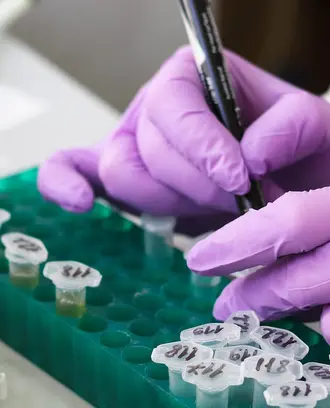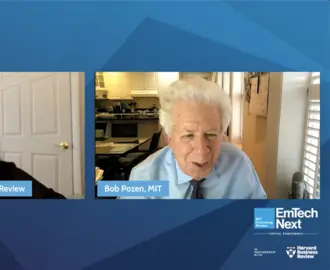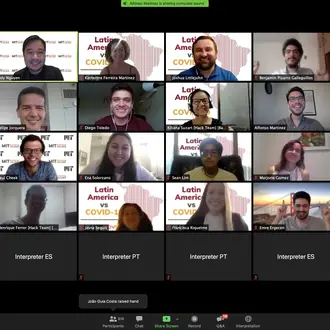Entrepreneurship
COVID-19 and antifragility: 4 key guiding principles and 1 current real-world example
Like everyone else, our world has come to a crashing halt as the COVID-19 situation affects the world. Classes, workshops, reunions and talks I had scheduled not just at MIT but also in Poland, Germany, and France had to be cancelled or completely rethought. Just getting basic essentials of life to keep going were now complicated. How all of this ends, and when it ends (if that is the right term), is not clear at all. What is one to do?
Bill Aulet, Managing Director, Martin Trust Center for MIT Entrepreneurship and Professor of the Practice, MIT Sloan School of Management
As we have discussed for years now, the pace of change is only going to keep increasing. These unusual disruptions should not be considered unusual in our planning process if we are realistic. We don’t know exactly what “normal” will be, but we know it will be something new, and it will come with great speed.We must be antifragile. This is at the core of what we strive to do as entrepreneurship educators: create antifragile humans and teams. We hope that these building blocks translate to making society more antifragile as well, but, realistically, we have our hands full with just the individuals and teams at this point. So what does this all mean in practice in light of our current crisis?
We must not wallow in despair or blame others. We must have a constructive and positive attitude that we control our own destiny and we can help solve this. Even more so, we must see this as an opportunity to rise up and solve a huge problem to make the world a better place going forward. That should energize us. We need to be the leaders in this time of vast uncertainty, adversity, incomplete information, and people out of homeostasis.
Now is the time for those who practice “disciplined entrepreneurship” and have been prepared for this moment with our training and apprenticeship in the 4H framework (Heart – mindset, spirit; Head – knowledge, analysis framework; Hands – capability built from apprenticeship to apply the knowledge and framework; Home – community and way of operating in a distributed manner).
As I thought about this, I wrote down four steps to stay focused on making a positive impact right now:
- Confidence: With our training, we need to step forward with assurance to help solve this problem. Yes, it is nothing we have done before, but think about what we have done in other situations that had similar (albeit less intense) characteristics. Yes, we can!
- Thoughtful Analysis to Produce Solutions: It is not enough to have the confidence; we must propose appropriate actions based on digesting and analyzing the incomplete data we have available. Our frameworks will help, but we must apply strong critical thinking to create intelligent short, medium, and long-term first draft solutions … and then put them into action.
- Leadership: Individuals will not solve this problem. We need teams, large teams, coordinated with each other. We need to create strong communities who are bound together by the rational first draft plans (i.e., the shared vision) and these communities need to be inspired to rapid and aggressive actions. Leadership is about inspiration, creating followers, and embracing change as a group. Just being confident and having the best analytic plan is not enough.
- Empathy: Ours is not an economic problem, it is a health care problem, and before all that, it is a humane problem of the first order. We must put this front and center. The “raison d’être” that we talk about for a startup is even more essential for actions taken now. This must be clear to all in developing, implementing, and iterating on the solutions.
All of us must do our part, but I would say now is the time for entrepreneurs to take an even bigger role.
I will end with an example of one of our past MIT delta v student teams, Mariana Matus (Computational and Systems Biology) and Newsha Ghaeli (Urban Planning), co-founders of Biobot Analytics. When they started the company in 2017, to say they envisioned this specific scenario would be too much. To say that they anticipated exactly this type of general health crisis and how poorly we were equipped to deal with it is completely correct.
As Mariana and Newsha executed the disciplined entrepreneurship process, they chose to address the opioid crisis as their beachhead market (their tagline has been “we analyze sewage to estimate opioid consumption in cities.”). This focus created a path to success. Of course, the journey was not easy and has been filled with bumps, but with strong conviction and skills, Biobot has been able to make great progress – as shared in their keynote address at delta v Demo Day in 2019.
Over the past week as I have spoken to the Biobot team, they have told me they realize this public health crisis they had been talking about is unfortunately coming true before the U.S. is ready. If Biobot’s product and services were installed in cities around the country, we would be able to fight this threat with data and precision. Instead we are wildly swinging at a “boogey man in the dark” without having a real vision of how the COVID-19 pandemic very specifically threatens us.
The appropriate metaphor is we are trying to drive the car by looking in the review mirror. In other words, future plans are being determined by death counts and test results (that we don’t really have) as opposed to us proactively identifying the size and location of potential outbreaks narrowed down to specific areas in a city (e.g, neighborhoods and even streets) to focus our efforts and resources there.
Mariana, Newsha, and the whole Biobot Analytics team are super aggressively working with all the needed stakeholders (governments, corporate R&D labs, hospitals, academics, etc.) to pivot their operations and update their technology for COVID-19 and make it widely available, for free or at cost.
This is not just a short-term solution, it is a long-term solution. You can read a more detailed write up with more to come on this as things evolve.
The Biobot team was always hardworking and motivated, but I have seen them rise to this occasion and they are on fire (in a positive way) like I have never seen them before. THIS is an example of being antifragile and it is what we need today and for the near future until we get through this.
Please let us know any other examples of anti-fragile entrepreneurs as these stories help to inspire others.
We have been trained for this moment so go forward with confidence, thoughtful analysis, leadership, and empathy to help us make it through these tough times.
Bill Aulet is the Managing Director of the Martin Trust Center for MIT Entrepreneurship and Professor of the Practice at the MIT Sloan School of Management.



